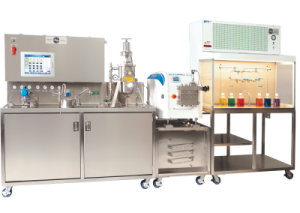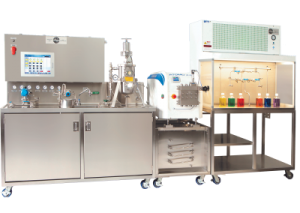
Milk pasteurization is a fundamental process in the dairy industry, ensuring that milk is safe for consumption by eliminating harmful bacteria and pathogens. Traditionally, this process has been dominated by large-scale operations with substantial equipment and high production capacities. However, with the increasing interest in local and artisanal dairy products, there has been a significant rise in the demand for small scale milk pasteurization machines. These machines offer numerous benefits for small dairy farms, artisanal cheese makers, and even home-based dairy enthusiasts. In this blog, we will explore the advantages and applications of small scale milk pasteurization machines and their impact on the dairy industry.
Understanding Milk Pasteurization
Pasteurization involves heating milk to a specific temperature for a set duration to kill harmful microorganisms without compromising the milk’s nutritional value and taste. The two primary methods are High-Temperature Short Time (HTST) and Low-Temperature Long Time (LTLT). While both methods are effective, they often require large and complex equipment, making them less suitable for small-scale operations.
The Rise of Small Scale Milk Pasteurization Machines
Small scale milk pasteurization machines are designed to cater to the needs of smaller dairy operations. These machines are compact, energy-efficient, and user-friendly, providing a feasible solution for small producers who want to pasteurize their milk effectively and affordably.
- Affordability and Accessibility
One of the most significant advantages of small scale milk pasteurization machines is their affordability. Large-scale pasteurization equipment can be prohibitively expensive, especially for small dairy farms and artisanal producers. In contrast, small scale machines are cost-effective, allowing these producers to pasteurize their milk without a significant financial burden. This affordability is crucial for small operations looking to maintain high standards of milk safety and quality without breaking the bank.
- Flexibility and Customization
Small scale pasteurization machines offer greater flexibility in terms of batch size and production capacity. Producers can pasteurize smaller quantities of milk, ranging from a few liters to several hundred liters per batch. This flexibility allows them to adjust their production according to demand, reducing waste and ensuring that fresh, high-quality milk products are consistently available. Additionally, some small scale machines can be customized to meet specific needs, such as different temperature settings for various types of dairy products.
- Enhanced Quality Control
Small scale milk pasteurization machines enable producers to maintain stringent quality control over their products. By processing milk in smaller batches, producers can closely monitor each batch and ensure it meets the required safety and quality standards. This level of control is particularly important for artisanal cheese makers and specialty dairy producers who prioritize the unique flavors and characteristics of their products. Enhanced quality control also helps build consumer trust and loyalty, which is vital for small businesses.
- Energy Efficiency
Many small scale milk pasteurization machines are designed with energy efficiency in mind. These machines often use advanced heating and cooling technologies to minimize energy consumption while maintaining effective pasteurization. This not only helps reduce operating costs but also aligns with sustainable and environmentally friendly practices, which are increasingly important to both producers and consumers.
- Ease of Use
Modern small scale pasteurization machines are designed to be user-friendly, with automated controls, digital displays, and programmable settings. These features simplify the pasteurization process, making it accessible to small dairy farms, local creameries, and even home-based producers who may not have specialized training in dairy processing. The ease of use allows producers to focus on other aspects of their business, such as marketing and customer engagement.
- Supporting Local and Artisanal Producers
The growing popularity of small scale milk pasteurization machines is supporting the resurgence of local and artisanal dairy production. Small dairy farms and creameries can compete with larger industrial producers by offering unique, high-quality products that appeal to consumers seeking locally sourced and sustainably produced food. This trend has led to the growth of farmers’ markets, local dairy cooperatives, and farm-to-table initiatives, fostering stronger connections between producers and consumers.
Conclusion
Small scale milk pasteurization machines are transforming the dairy industry by making pasteurization accessible and affordable for small producers. These machines enhance quality control, promote energy efficiency, and support the growing demand for locally sourced, high-quality dairy products. As consumers continue to seek out unique and sustainable food options, small scale milk pasteurization machines will play an increasingly important role in shaping the future of dairy production. By embracing this technology, small dairy farms and artisanal producers can thrive in a competitive market while delivering safe, delicious, and high-quality milk products to their customers.

